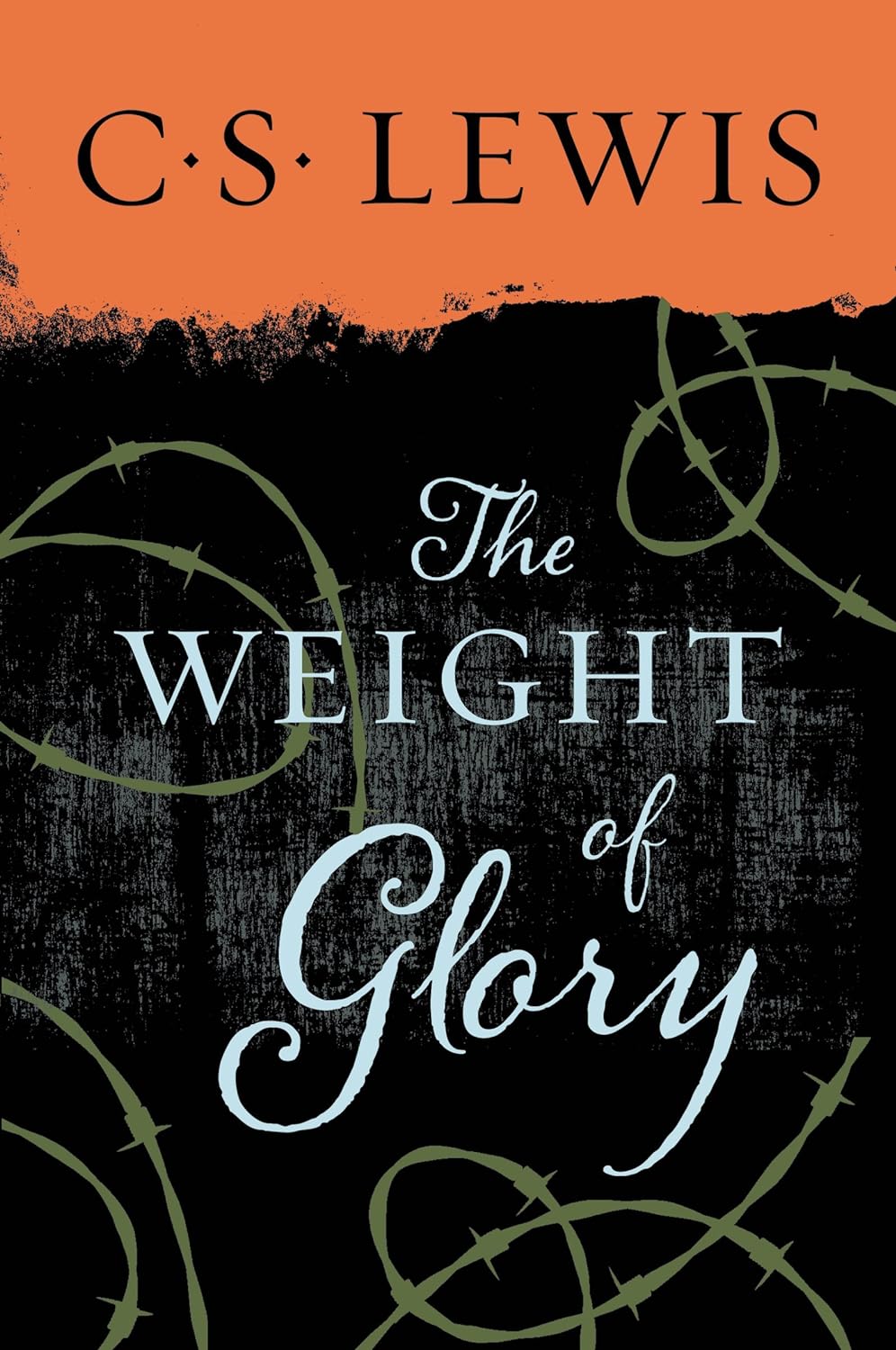 We Marry, Snub, and Exploit Immortals
We Marry, Snub, and Exploit Immortals
Author: C.S. Lewis
The Weight of Glory is one of the best collections of C.S. Lewis essays, each expertly covering a difficult and poignant topic that interfaces with how we react with one another, with our calling in life, and ultimately how we interact with God. The topics range from humanity’s ultimate, immortal nature; to our finding and answering our callings; to how we think about and understand Heaven; to the effects of war and pacifism; to the truth of Christianity as averse to the fancy, poetical pull of false religions and ideologies; and more. The topics are quite heady, and this is not the “read it once” type of book, much less one that you can read (or listen to) with only half an ear. It’s a hard read, for sure, and some essays are more accessible than others, but they are all personally edifying and essential reading for all Christians.
This book is comprised of nine essays, starting with the title piece, which reflects on how we treat one another and how we fail to understand the ultimate nature of humanity. We shall each become immortal, and Lewis argues, in his famous lines:
It is a serious thing to live in a society of possible gods and goddesses, to remember that the dullest most uninteresting person you can talk to may one day be a creature which, if you saw it now, you would be strongly tempted to worship, or else a horror and corruption such as you now meet, if at all, only in a nightmare. All day long we are, in some degree, helping each other to one or the other of these destinations. It is in light of these overwhelming possibilities, it is with the awe and circumspection proper to them, that we should conduct all our dealings with one another, all friendships, all loves, all play, all politics. There are no ordinary people. You have never talked to a mere mortal. Nations, cultures, arts, civilizations – these are mortal, and their life is to ours as the life of a gnat. But it is immortals whom we joke with, work with, marry, snub, and exploit…” (45-46).
This essay on what glory means, on our true nature and what we should concentrate on as we work with (and against) one another is a famous essay for a reason, and if you only have the chance to read one C.S. Lewis work, this should be it. The collection starts strong here, and Lewis explains in his simple, yet insightful way, what we already know but keep forgetting: we are made for something far greater than our petty desires, our ignoble temptations, our small-minded, in-the-moment inanities.

Image by Claudio Henrique Claudio from Pixabay
Another idea presented in this collection that I found especially inspired is in Lewis’ second essay, talking about the then current World War (II) and reminding everyone to not romanticize their calling. No time is exceptional and everything we do for God, whether we are a solider or a sweeper, a grand artist or a janitor, should be done for the glory of God. There are no ordinary callings, and we should not get swept up in our times and miss our mission or undervalue what God has called us to do, even if it isn’t especially exciting in the world’s estimation.
One of Lewis’ more difficult essays, “On Transposition,” left me with a vital image. Lewis describes our true understanding of the universe and of heaven, saying that we are like a child born in a prison, who only knows the outside world through drawings; we are shocked to find out that the real world does not consist of lines, nor is it two dimensional. This explanation and visual was very striking and brought home to me further how little we truly understand the greatness of God and His ultimate kingdom.
Lewis also brings in humanity’s love of storytelling, tying it into poetry. Now, this is something I understand less (despite my English major past, I hate poetry). What stood out for me though was how Lewis addressed some critics’ response to the Bible and Biblical narrative and how its truth is not necessarily as exciting as the lies of, for instance, evolution. Lewis points out that truth, once we come to love it, is just as sweet as poetry, but at times it’s very trueness can be off-putting to our inner artists. Sometimes artists have learned and been taught to prefer elegant lies to the unvarnished beauty of truth. It’s an interesting idea, and one that although complicated, and a little hard to follow at times, has merit.

Image by Claudio Henrique Claudio from Pixabay
Lewis, a man of deep friendships, also has a lot to say about community. This is another area where I sometimes felt that Lewis was speaking directly to me. Lewis warns against the cliquish nature of humanity and, conversely, the individualistic bent of society that overlooks the value of community. He advocates for a middle ground: moments of silence with God, but also strict inclusion in a community of believers. As someone distinctly outside of community, half cynic and half hermit, this constant focus on a community in Christian books I have been reading of late is just further brought home by Lewis. As he notes, there are pitfalls even here, but ignoring humanity and going it alone is not God’s mandate nor the answer to our personal spiritual growth.
There are, of course, other essays. I felt that the best were in the beginning. As the book goes on, the essays get more difficult to understand and also shorter. They all have merit though, and I can see myself re-reading this tome, as well as another one of my favorite Lewis collections, God in the Dock, again and again. As always, reading and re-reading Lewis opens new horizons, reveals old truths, and engages readers both intellectually and spiritually. I was not disappointed and am pleased to add The Weight of Glory to my growing Lewis library. Highly recommended.
– Frances Carden
Follow my reviews on Twitter at: https://twitter.com/xombie_mistress
Follow my reviews on Facebook at: https://www.facebook.com/FrancesReviews
- Book Vs Movie: The Shining - April 6, 2020
- Thankful For Great Cozy Mysteries - December 13, 2019
- Cozy Mysteries for a Perfect Fall - October 20, 2019

